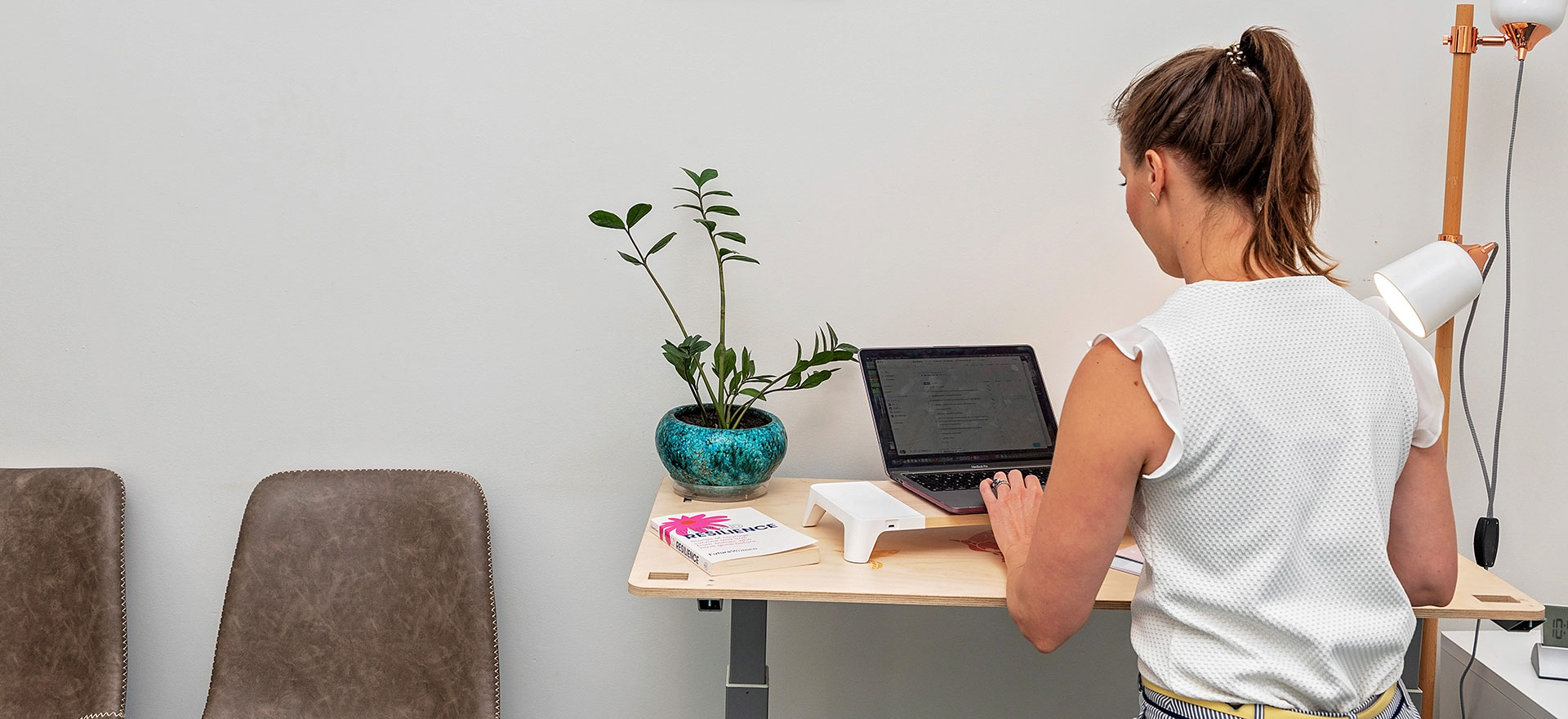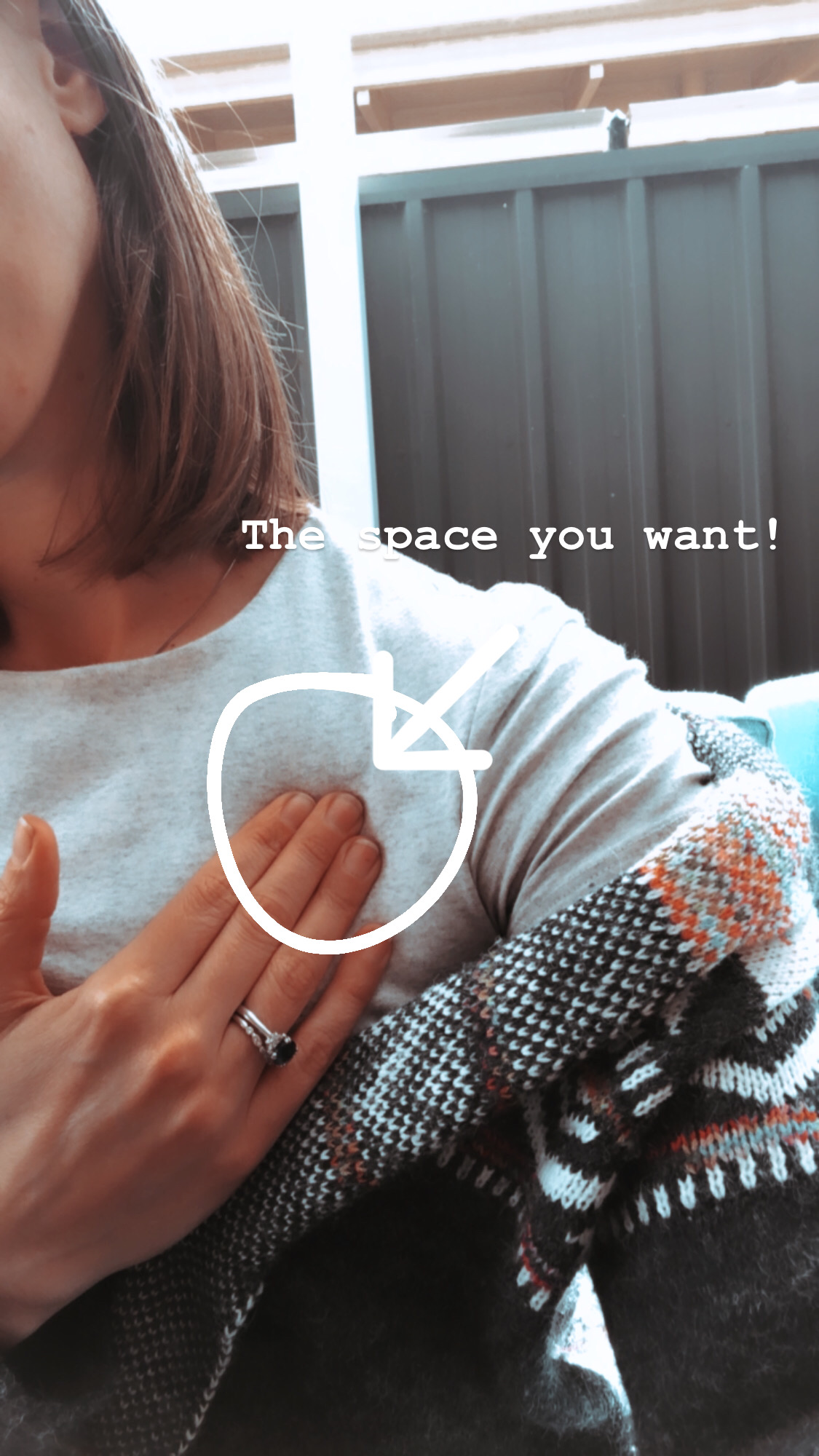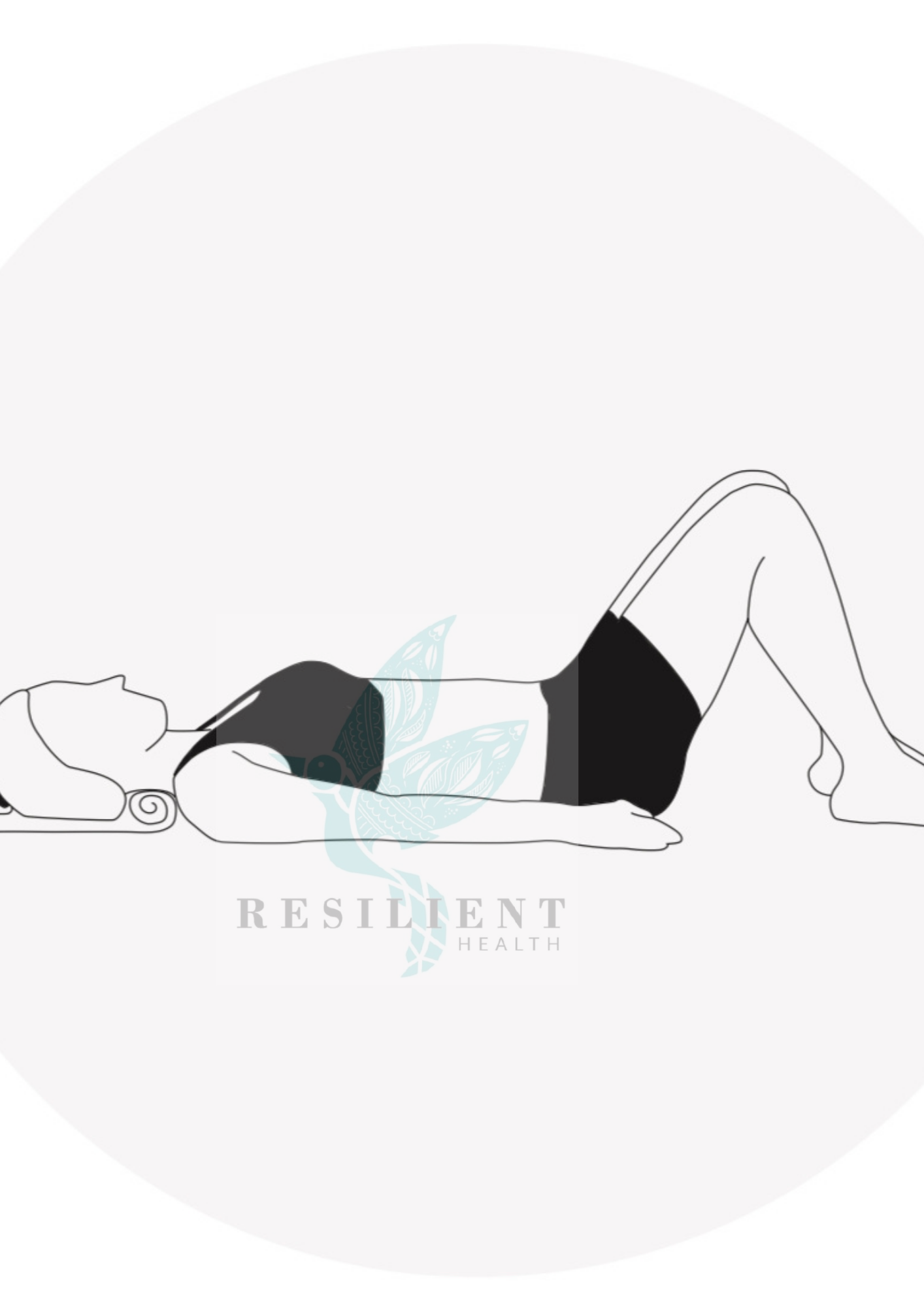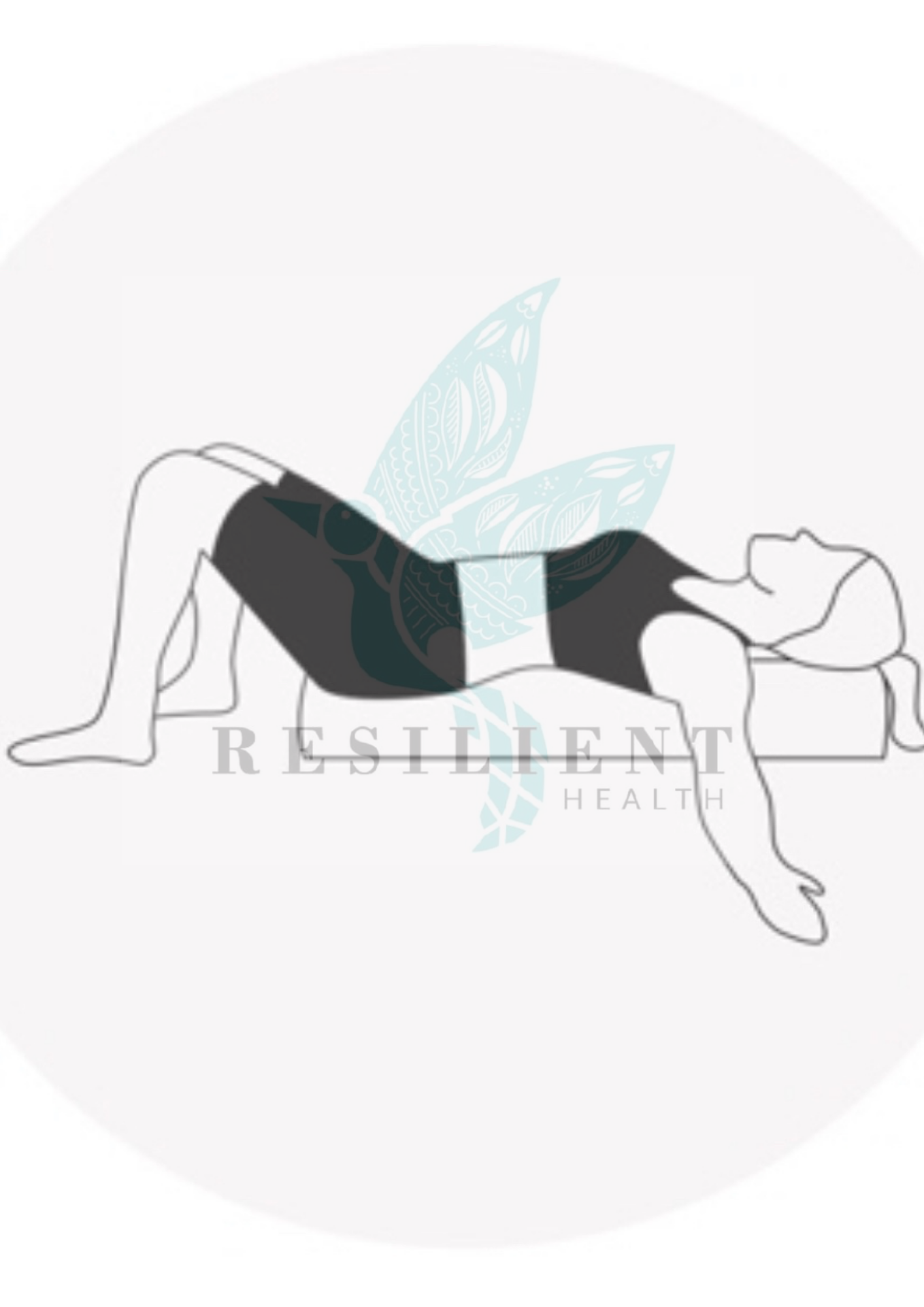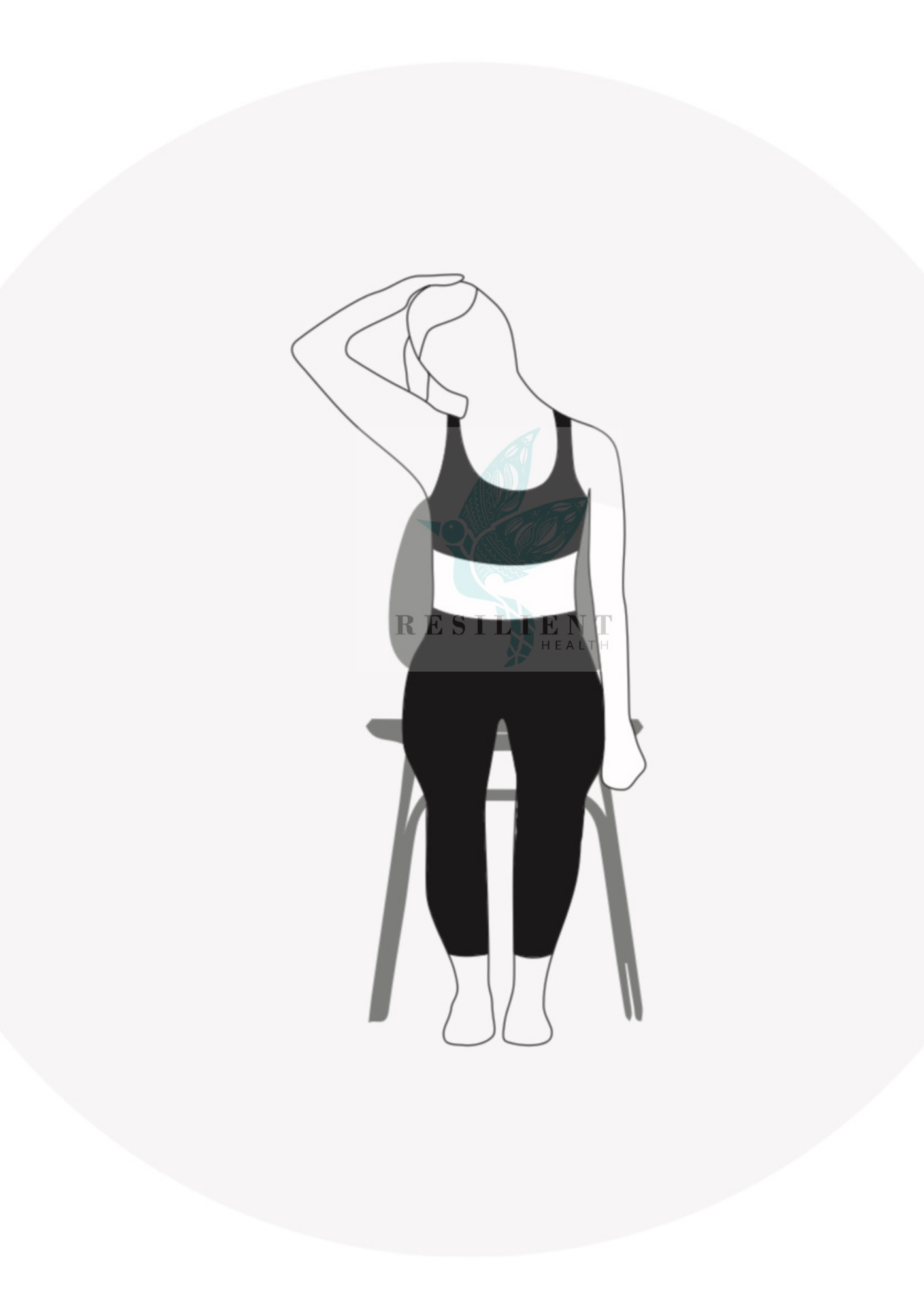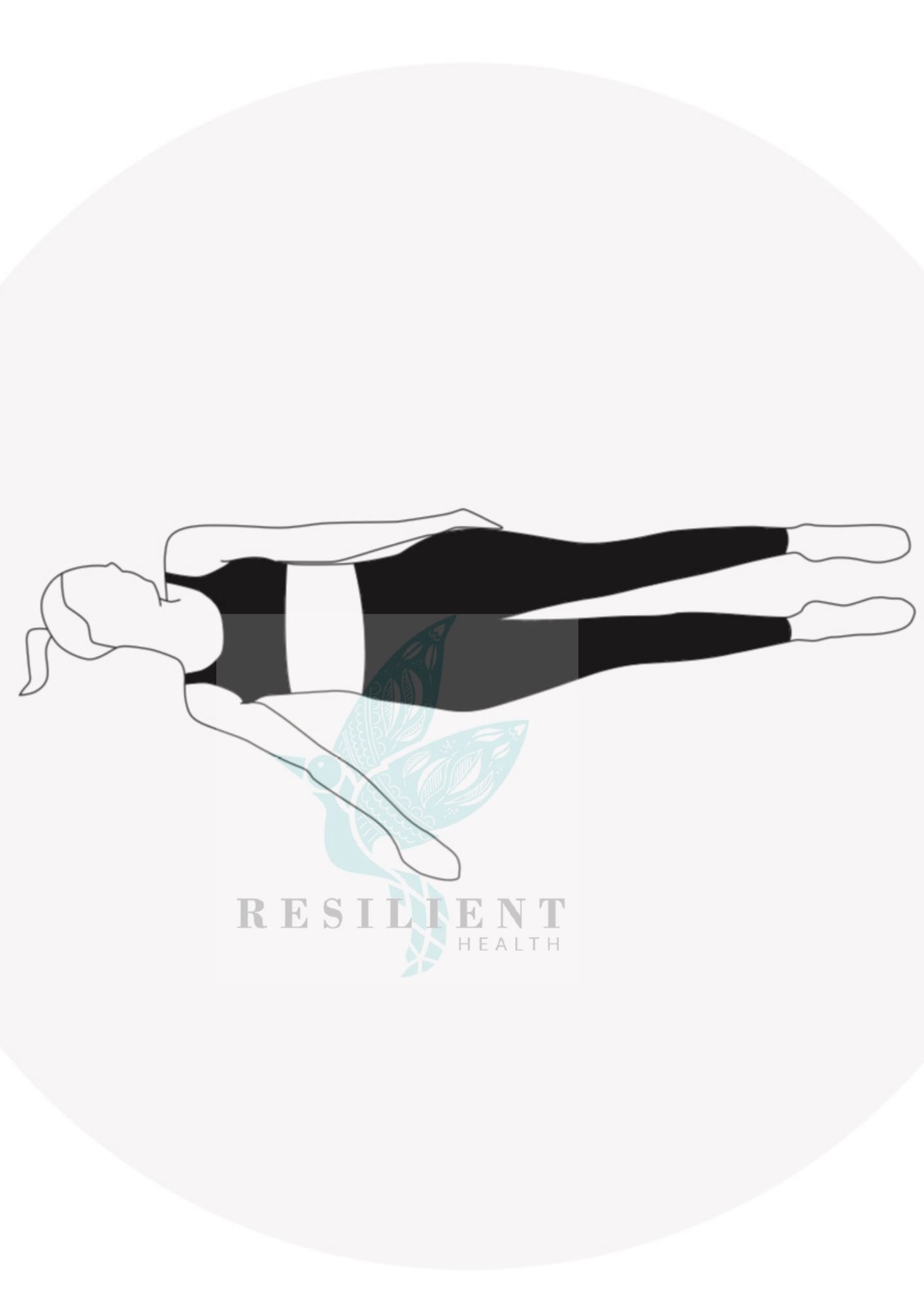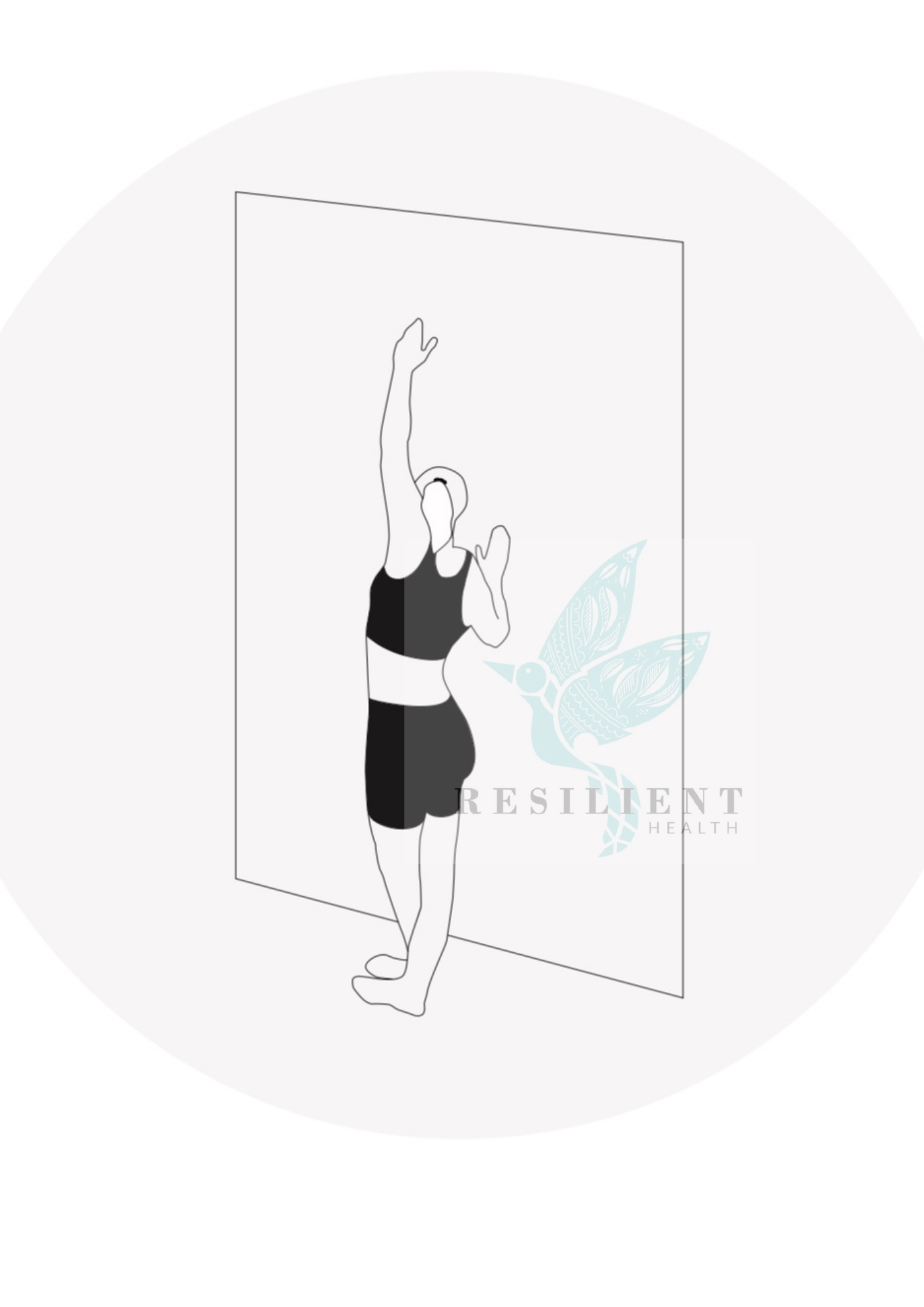Congestion quashing that Spring in your step?
Resiliently Healthy tips that can aid head and neck congestion By Dr Courtnay Wood (Osteopath)
Congestion can affect the function of the upper respiratory tract, sinuses and the lymphatic pathways. Movement of fluid is important for the maintenance of health and wellbeing, when we become congested our bodies are in a state of fluid stasis as function of the upper respiratory tract and lymphatic drainage is hindered.
So, what are some Resilient Health tips and tricks for decongestion, I hear you ask!!
1. Thoracic inlet lymphatic drainage
The lymphatic system is a drainage system that helps to remove fluid from tissues and fight infection and is important for best fluid movement. Congestion can occur when this system isn’t functioning optimally. We can help this along with a thoracic inlet drainage technique.
Seated or lying on your back.
Using the opposite hand, feel for your collarbone.
Run your hand along your collarbone, from the middle of your body towards your shoulder
From this point, move your hand down underneath your collarbone. Here, you will feel your second rib
Between your second rib and your collarbone, apply a small amount of pressure and move your hand in circles to gently massage over this area for about 1 minute.
Repeat on the other side.
2. Sinus percussion
Here is another technique good for lymphatic drainage and drainage of sinuses.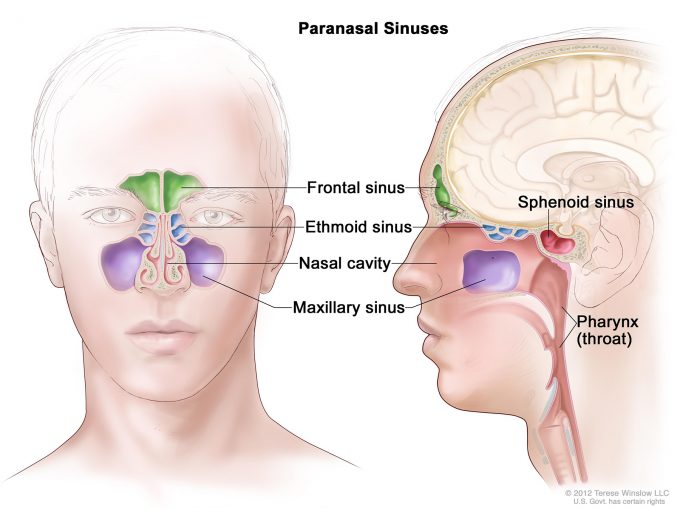
The image above highlihgts where your sinsues are. Sourced from the National Cancer Institute: https://www.cancer.gov/publications/dictionaries/cancer-terms/def/nasopharynx

Using two (2) fingers, gently tap along your check bone starting from the side of your nose and moving out towards your ear. (Coloured arrows)
This can also be done along the top of your eyebrow, starting from the inner aspect of your brow and moving towards your temple. (White arrow)
Thanks to Dr. Casey Beaumont (Osteopath) for offering her sinsues!
3. Sub-occipital inhibition
This involves the small muscles at the base of your skull. By inhibiting these muscles, it aims to reduce muscle tension and improve fluid movement of the head and neck. In addition, calming down the sympathetic nervous system (fight or flight response) and stimulating the parasympathetic nervous system (rest and digest) for best recovery.
Using a hard ball (i.e. cricket ball, lacrosse ball, peanut (two lacrosse balls taped together) or a rolled hand towel (if you ahve neck sensitivity), lie on your back and place the hard ball at the base of your skull on one side of your head/neck. It is important to note that your chin will be in a slight tuck rather than pointing up at the ceiling. Avoid placing the ball in the midline of the base of your skull (this is predominantly bone and will be very uncomfortable). Hold this spot until your start to feel the muscle tension ease off, then switch the ball onto the other side. It is not uncommon to feel a referral pattern into your forehead or the back of your eye.
4. Over the towel stretch
This is a great activity to reduce your sympathetic nervous system input (your fight or flight response), as well as encourage lymphatic drainage to improve fluid movement and reduce congestion.
Roll up a towel and place it perpendicular to your pillow (you should have made a T with your towel and pillow).
Lie over the towel with your head on your pillow – making sure your towel is in running vertically along your spine.
Bring your arms out to the sides, letting them relax into the floor.
Take deep breaths as you lie here
Hold this for a minimum of 90 seconds
5. Neck massage
Soft tissue massage of your neck muscles aims to relax the muscles and reduce fluid congestion.
Massage along the sides, back and front of your neck in big sweeping motions from the top of your neck down and along the tops of your shoulders.
6. Accessory breathing muscle stretching
When we are feeling congested, we tend to recruit our secondary breathing muscles to aid with respiration, this includes the neck muscles, pectoral muscles, Lats, the muscles between the ribs and the muscles on the side of the body. These to, can become congested, tight and overworked. Stretching these muscles will help to reduce muscle tension and decrease congestion thereby improving lymphatic drainage.
Scalene stretch
Seated
Begin sitting upright with your feet planted firmly on the ground
Bring the opposite arm over your head with your palm flat over your ear
Using this arm, gently pull your head into a side bending position
While in this side bent position, gently turn your head to look down towards your armpit
Hold for 30-45 seconds and repeat on the other side
OR!
Laying
Alternatively, you can do this one laying on your back.
Sternocleidomastoid (SCM) stretch
Similar to the scalene stretch
Begin seated with your feet planted firmly on the ground
Bring the opposite arm over your head with your palm flat over your ear
Using this arm, gently pull your head into a side bending position
While in this side bent position, gently turn your head to look up towards the ceiling
You should feel a stretch along the front of your neck into your collarbone
Hold for 30-45 seconds and repeat on the other side
Latissimus Dorsi, Serratus Anterior and Quadratus Lumborum stretch
Standing
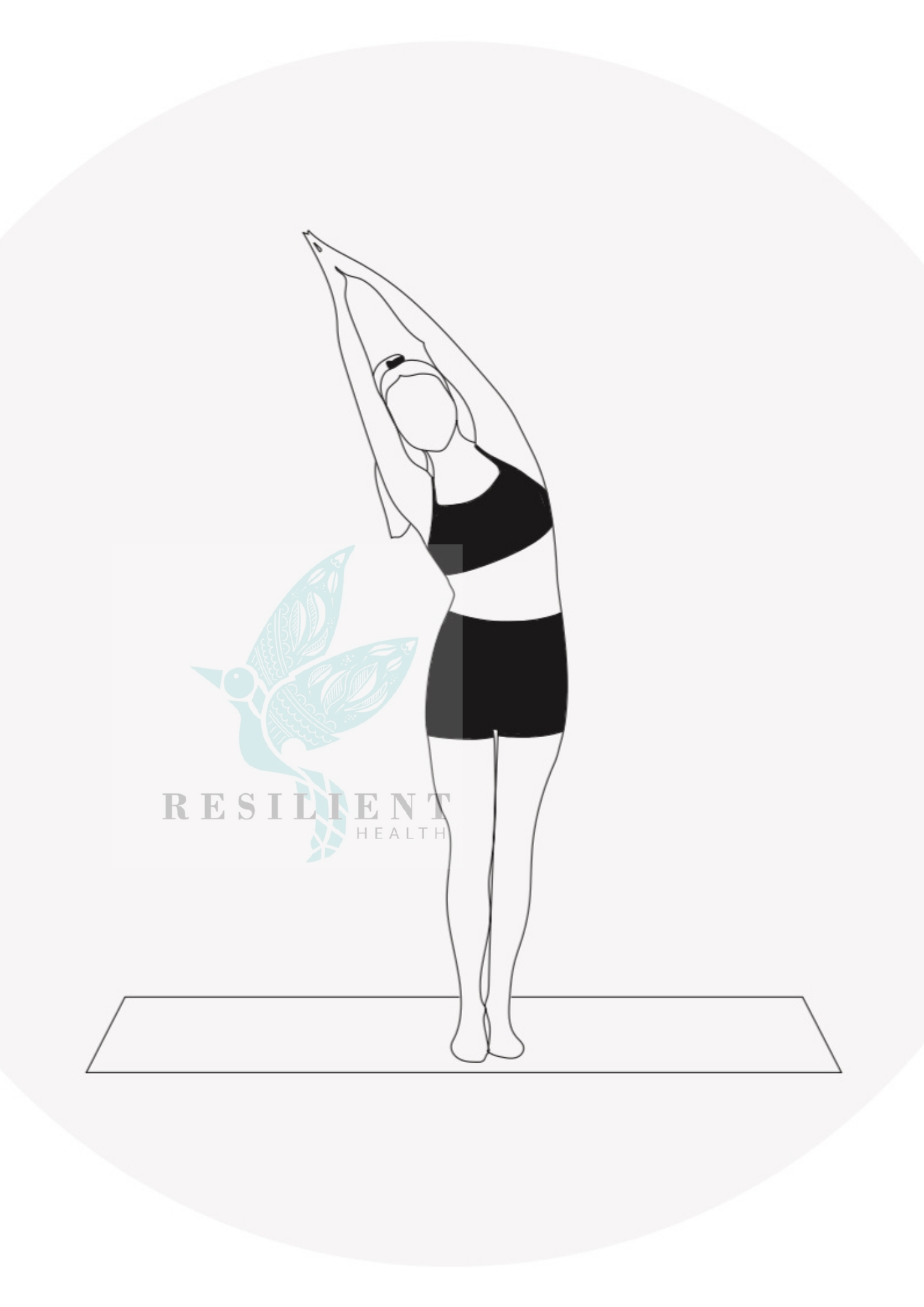
Grab hold of one of your wrist with the other hand
Using that hand, gently pull your arm to the side, allowing your body to side bend with the movemen
You should feel a stretch along the side of your body
Hold for 30-45 seconds and repeat on the other side
For a deeper stretch, cross your leg on the side being stretched behind the other leg
Alternatively- you an do this leaning up against the wall OR laying flat on your back.
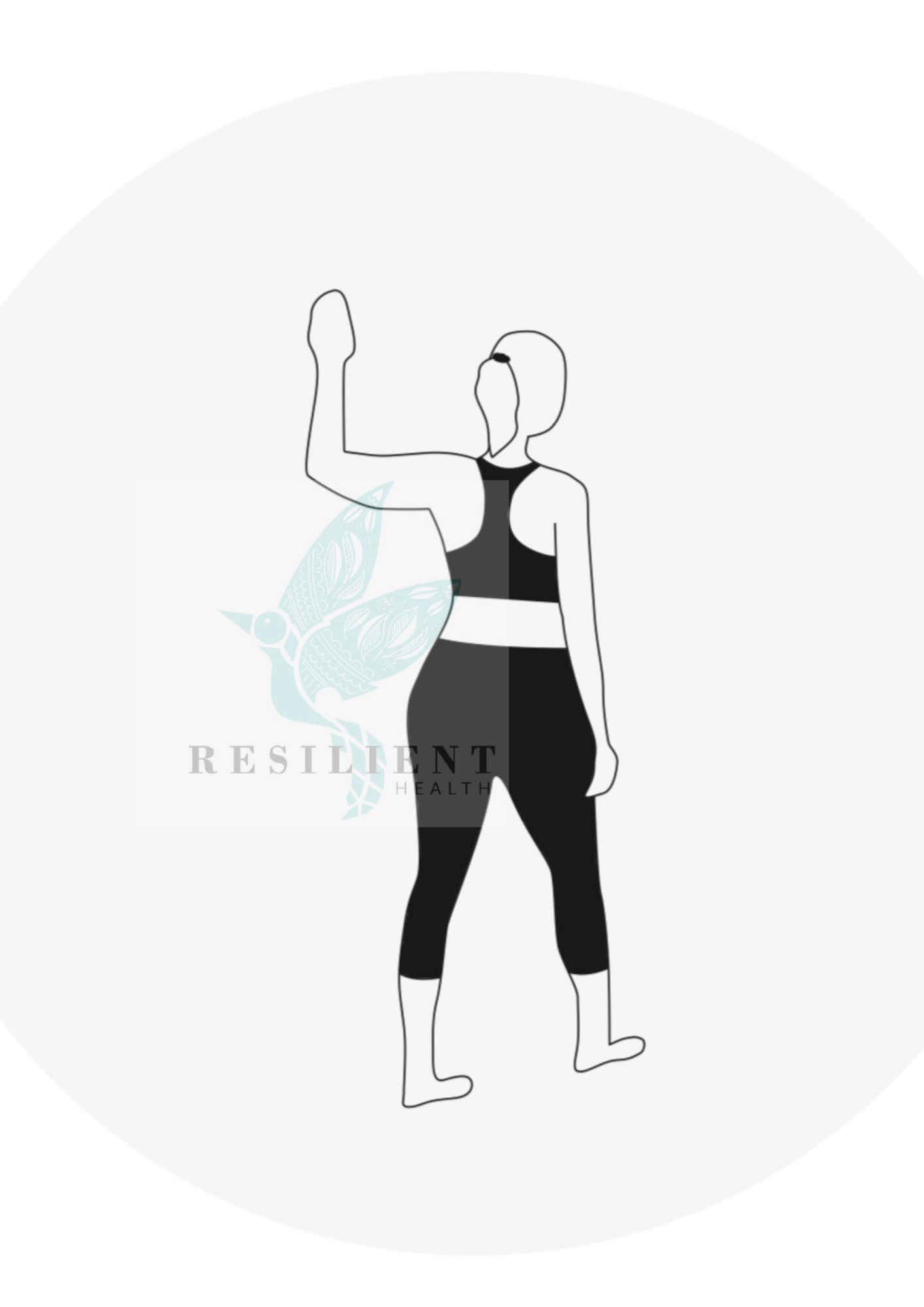
Standing in a doorway
Place your elbow and forearm on the doorframe with your elbow at 90º to your shoulder
Step through the doorframe with the opposite leg
You should feel a stretch through the front of your chest
Hold this position for 30-45 seconds and repeat on the other side
See you in the clinic!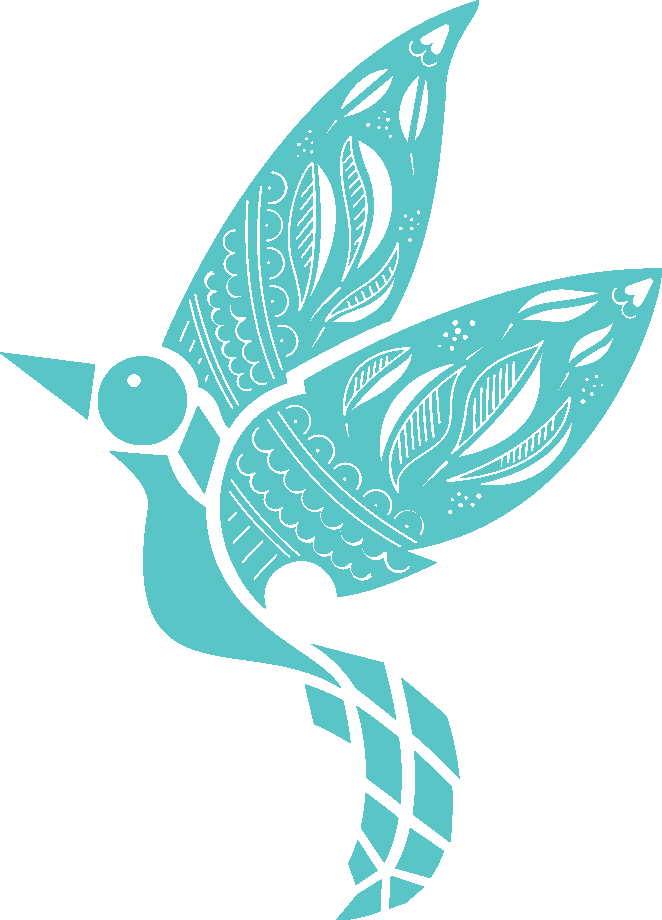
The Resilient Health Team
*Sketched images commissioned from @thejaquesstudio
